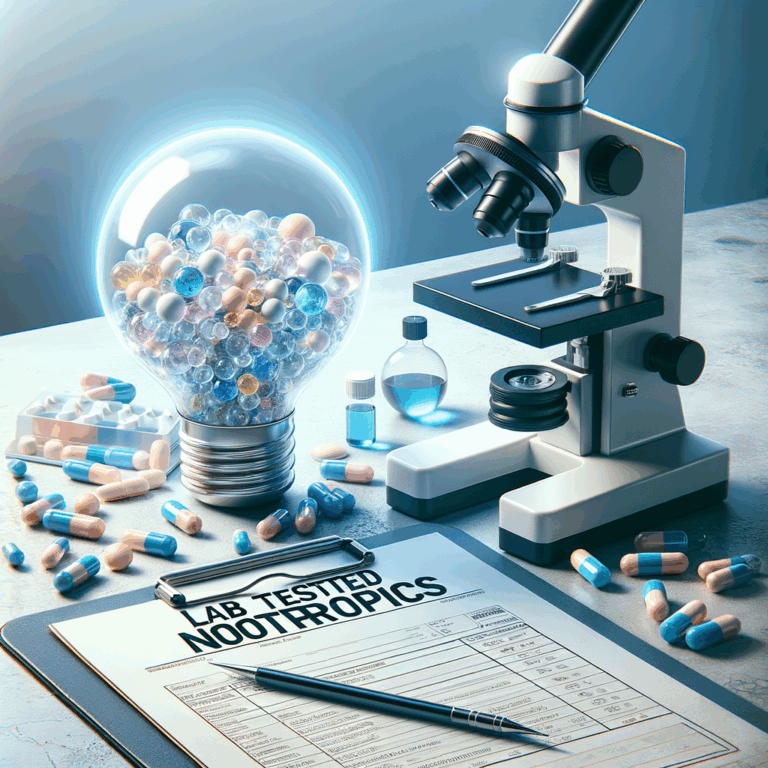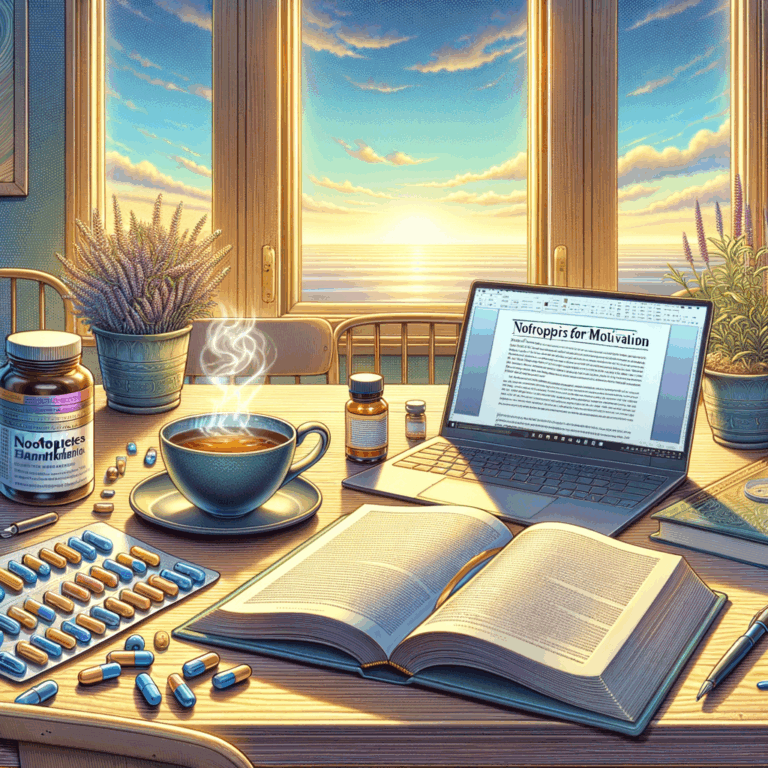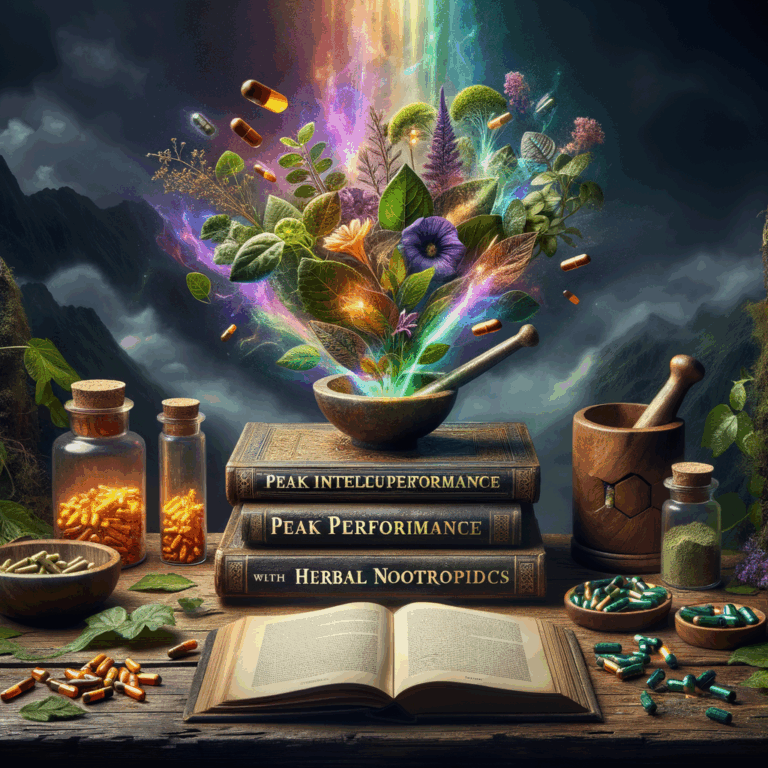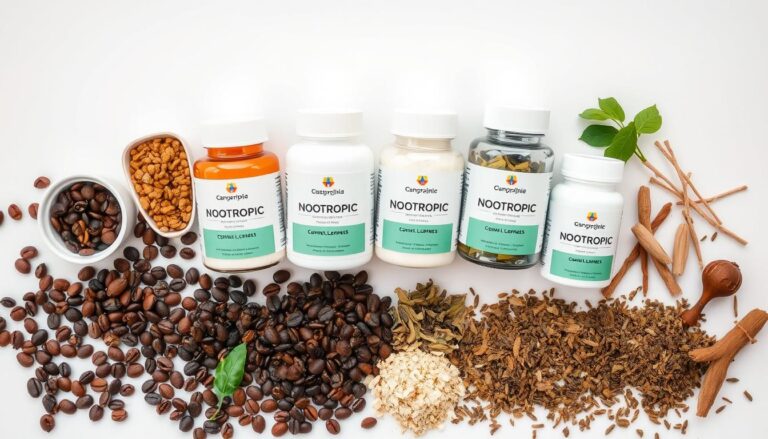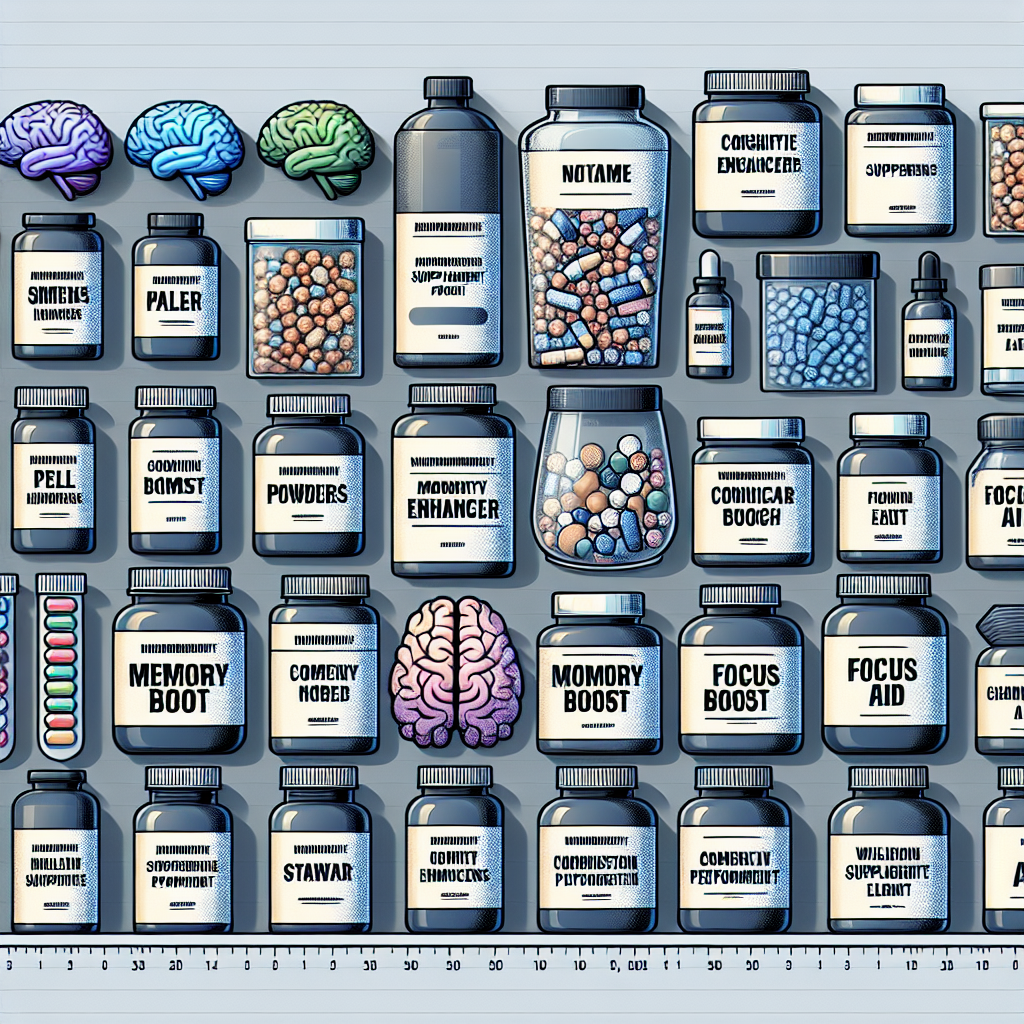
- What Makes the Best Nootropic Stack?
- 1. Synergy of Ingredients
- 2. Targeted Effects
- 3. Safety and Tolerance
- Essential Ingredients for the Best Nootropic Stack
- 1. Caffeine
- 2. L-Theanine
- 3. Bacopa Monnieri
- 4. Rhodiola Rosea
- 5. Alpha-GPC
- 6. Omega-3 Fatty Acids
- 7. Lion’s Mane Mushroom
- 8. Creatine
- 9. Ginkgo Biloba
- 10. Modafinil
- How to Create Your Best Nootropic Stack
- 1. Identify Your Goals
- 2. Start with Basic Ingredients
- 3. Monitor Your Response
- 4. Cycle Your Nootropics
- Common Mistakes to Avoid
- 1. Overloading Your Stack
- 2. Ignoring Lifestyle Factors
- 3. Neglecting Research
- 4. Skipping Professional Guidance
- Potential Side Effects of Nootropics
- 1. Headaches
- 2. Gastrointestinal Issues
- 3. Insomnia
- 4. Anxiety
- Real-Life Success Stories
- 1. The College Student
- 2. The Professional
- FAQs
- 1. What is a nootropic stack?
- 2. How do I know which nootropics to include in my stack?
- 3. Are nootropics safe to use?
- 4. Can I take caffeine with other nootropics?
- 5. How long does it take to notice results?
- 6. Is cycling necessary for nootropics?
- 7. Can I mix nootropics with prescription medications?
- 8. What is the best time to take nootropics?
- 9. How do lifestyle factors affect nootropic effectiveness?
- 10. Are there any side effects associated with nootropics?
- Conclusion
- References
Understanding Nootropics and Their Benefits
Nootropics, often termed “smart drugs” or “cognitive enhancers,” have gained significant attention in recent years. These substances claim to improve cognitive functions, including memory, creativity, focus, and motivation. Given the hectic pace of modern life, students and professionals alike are increasingly looking for ways to enhance their mental performance. Amid all the options, crafting the best nootropic stack can be pivotal for effortless learning.
Before exploring the best nootropic stacks out there, it’s essential to understand what nootropics are and how they impact cognitive functions. Basic compounds like caffeine are often seen as nootropic, but a more comprehensive stack can provide broader benefits.
What Makes the Best Nootropic Stack?
Creating an effective nootropic stack requires a blend of various ingredients that target different aspects of cognitive function. To find the best nootropic stack, consider the following factors:
1. Synergy of Ingredients
When crafting a nootropic stack, it’s crucial to select compounds that work well together. The goal is to create a synergistic effect, where the combined impact of the ingredients is greater than the sum of their individual effects. For instance, combining an adaptogen like Rhodiola Rosea with a choline source like Alpha-GPC can enhance overall cognitive performance.
2. Targeted Effects
Different nootropics provide different benefits. Some enhance memory, while others might boost focus or reduce anxiety. Knowing your specific needs will help you select the right ingredients. For example, if you’re preparing for exams, memory-enhancing compounds might be your primary focus. On the other hand, if you’re battling procrastination, stimulants might be a better choice.
3. Safety and Tolerance
Long-term use of nootropics should be safe for cognitive function. Pay attention to dosages and possible side effects. It’s vital to cycle your stack to prevent tolerance build-up. Starting with smaller dosages allows you to gauge your tolerance and effectiveness.
Essential Ingredients for the Best Nootropic Stack
The best nootropic stacks often include a blend of different compounds. Here’s a list of essential ingredients that can contribute to enhancing cognitive function:
1. Caffeine
Caffeine is undoubtedly the most popular nootropic. It boosts alertness and focus while enhancing overall cognitive performance. A moderate dose of caffeine can help you feel energized and ready to tackle your tasks. However, too much can lead to jitters, so moderation is key.
2. L-Theanine
L-Theanine is an amino acid found in tea leaves. It promotes relaxation without sedation. When combined with caffeine, L-Theanine can enhance focus while reducing the jittery effects associated with caffeine. Together, they create a balanced approach to learning and productivity.
3. Bacopa Monnieri
Bacopa Monnieri is an ancient herb known for its memory-enhancing properties. It can improve information retention and recall, making it a must-have for students. Regular use may lead to long-term cognitive benefits, such as enhanced memory performance.
4. Rhodiola Rosea
Rhodiola Rosea is an adaptogen that helps the body adapt to stress. It improves mental performance during stressful situations and reduces fatigue. Incorporating it in your stack can boost your overall resilience, especially during demanding study sessions.
5. Alpha-GPC
Alpha-GPC serves as a choline source, essential for the production of acetylcholine, a neurotransmitter vital for memory and learning. Including Alpha-GPC in your stack can enhance your cognitive function and provide a steady source of energy.
6. Omega-3 Fatty Acids
Omega-3s, particularly DHA and EPA, play a crucial role in brain health. They improve cognitive function and support overall brain integrity. Adding a high-quality omega-3 supplement can provide long-term cognitive benefits.
7. Lion’s Mane Mushroom
Lion’s Mane Mushroom offers neuroprotective effects and may promote cognitive function. Research suggests it can stimulate the production of nerve growth factor, supporting brain health. Its positive impact on mental clarity makes it an excellent addition to any stack.
8. Creatine
Creatine is commonly known for its muscle-building properties but can also enhance cognitive performance. Research shows that initial review suggests it may improve short-term memory and reasoning skills, particularly in sleep-deprived individuals.
9. Ginkgo Biloba
Ginkgo Biloba is another herb known for enhancing memory and cognitive speed. It promotes blood flow to the brain, supporting cognitive function. Adding Ginkgo Biloba to your nootropic stack can be beneficial, especially as you age.
10. Modafinil
For those looking for pharmaceutical-grade nootropic options, Modafinil is a popular choice. It enhances wakefulness and boosts cognitive functions. However, it’s important to use it responsibly due to potential side effects and prescription requirements.
How to Create Your Best Nootropic Stack
Crafting the best nootropic stack isn’t a one-size-fits-all approach. Here’s how to start building your personalized stack:
1. Identify Your Goals
Your first step is determining what you want to achieve. Whether it’s boosting memory for exams, enhancing focus for a project, or reducing anxiety, knowing your objectives will guide your ingredient choices.
2. Start with Basic Ingredients
Begin with a basic stack, including caffeine and L-Theanine. This combination is widely used and can offer noticeable benefits in terms of focus and alertness. Once you’re comfortable, you can gradually add more specific nootropics.
3. Monitor Your Response
Keep a journal to track how different stacks affect your performance and well-being. Note any side effects or improvements. This helps you fine-tune your stack effectively.
4. Cycle Your Nootropics
To prevent tolerance, consider cycling your nootropics. For example, using a specific stack for two weeks followed by a break can help maintain effective performance.
Common Mistakes to Avoid
While crafting your best nootropic stack, watch out for these common pitfalls:
1. Overloading Your Stack
Many people think more is better. However, too many ingredients can lead to adverse effects. Stick to a few potent nootropics initially and gradually introduce new ones.
2. Ignoring Lifestyle Factors
Nootropics aren’t magic pills. Factors like sleep, diet, and exercise significantly affect cognitive function. Ensure a balanced lifestyle to maximize the benefits of your stack.
3. Neglecting Research
Not all nootropics are created equal. Failing to research your chosen ingredients can lead to ineffective results. Take the time to understand the benefits, recommended dosages, and potential side effects.
4. Skipping Professional Guidance
If you have medical conditions or take medications, consult your healthcare provider before starting any nootropic stack. Professional guidance can ensure you avoid harmful interactions.
Potential Side Effects of Nootropics
While many nootropics are generally regarded as safe, some can cause side effects. Understanding these is crucial for responsible use. Common side effects may include:
1. Headaches
Some users experience headaches, especially with stimulants like caffeine. Staying hydrated and balancing your stack can help minimize this effect.
2. Gastrointestinal Issues
Certain nootropics can upset the stomach. Begin with smaller doses to assess your tolerance and gradually increase as needed.
3. Insomnia
Stimulants can disrupt sleep patterns if taken too late in the day. Consider morning or afternoon use to avoid insomnia.
4. Anxiety
Some individuals may feel increased anxiety with specific nootropics, especially stimulants. If this occurs, consider alternatives or reducing the dosage.
Real-Life Success Stories
Hearing from others about their experiences can motivate you to dive into nootropics. Here are a couple of success stories:
1. The College Student
A college student named Sarah struggled with focus during her final exams. After researching, she crafted a nootropic stack including caffeine, L-Theanine, and Bacopa Monnieri. The combination helped her improve focus and retention during study sessions. She felt more confident and performed well on her exams.
2. The Professional
John, a project manager, faced daily stress and tight deadlines. He incorporated Rhodiola Rosea and Omega-3s into his stack. The adaptogen helped him manage stress, while Omega-3s provided cognitive support. As a result, he felt more productive and focused on tasks, leading to better project outcomes.
FAQs
1. What is a nootropic stack?
A nootropic stack is a combination of different nootropic substances taken together to enhance cognitive performance.
2. How do I know which nootropics to include in my stack?
Identify your specific goals (e.g., focus, memory) and choose nootropics that address those needs.
3. Are nootropics safe to use?
Generally, nootropics are considered safe when used responsibly. However, always consult a healthcare provider for personalized advice.
4. Can I take caffeine with other nootropics?
Yes, caffeine is often included in stacks. Combining it with L-Theanine can reduce jittery effects while enhancing focus.
5. How long does it take to notice results?
Results can vary depending on the individual and the nootropic used. Some may notice effects quickly, while others may require several weeks.
6. Is cycling necessary for nootropics?
Cycling helps prevent tolerance and maintains effectiveness. Consider taking breaks between cycles of specific nootropics.
7. Can I mix nootropics with prescription medications?
Consult a healthcare provider before combining nootropics with medications to avoid potential interactions.
8. What is the best time to take nootropics?
Timing depends on the specific nootropic. For example, take stimulants like caffeine in the morning, while others like Bacopa Monnieri can be taken at any time.
9. How do lifestyle factors affect nootropic effectiveness?
Sleep, diet, and exercise significantly impact cognitive function and nootropic effectiveness. Maintain a healthy lifestyle for optimal results.
10. Are there any side effects associated with nootropics?
Possible side effects include headaches, gastrointestinal issues, insomnia, and increased anxiety. Monitor your response and adjust as needed.
Conclusion
The journey into nootropics can be exciting and enlightening. The best nootropic stack can help you achieve new heights in learning and productivity. However, always approach this journey with caution. Research, experimentation, and awareness of your body’s responses will lead you to the most effective stack for your needs. Whether you’re a student preparing for exams or a professional facing tight deadlines, the insights shared in this post can guide you toward mental clarity and effortless learning.
References
1. Verywell Mind – Nootropics
2. Healthline – The Best Nootropics
3. Psychology Today – Cognitive Enhancers
4. Nootropics Expert – Choosing the Right Nootropics
